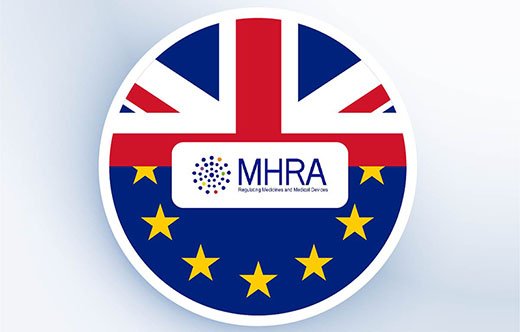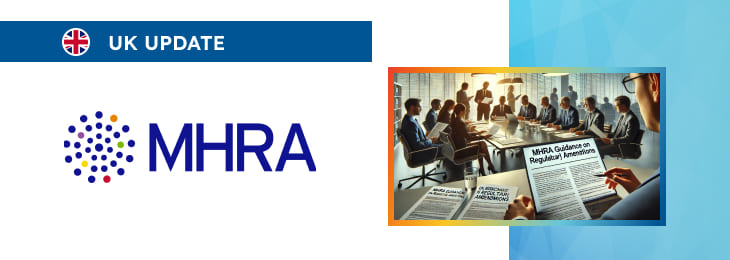The article describes in detail the approach the UK authority intends to apply when implementing amendments to the existing legal framework.

Table of content
The Medicines and Healthcare products Regulatory Agency (MHRA), the UK agency responsible for medical devices, has published a guidance document dedicated to the reporting in the context of healthcare products. The document provides an overview of the applicable regulatory requirements in the United Kingdom, as well as additional clarifications and recommendations to be taken into consideration by medical device manufacturers and other parties involved in order to ensure compliance.
At the same time, the authority reserves the right to make changes to the guidelines and recommendations provided therein, should such changes be reasonably necessary to reflect corresponding amendments to the underlying legislation. In particular, the MHRA has set forth specific guidelines for manufacturers and sponsors involved in clinical investigations, particularly concerning the submission of quarterly summary reports.
These reports are mandated as part of the conditions for MHRA approval and are designed to provide a comprehensive update on the overall safety profile of ongoing investigations. It is important to mention that this guidance applies exclusively to devices and is also pertinent for device-related reporting in any combined studies.
Furthermore, the authority emphasizes that details concerning any Investigational Medicinal Product (IMP) under investigation should be excluded from these reports.
Reporting Template
The quarterly summary report is structured around a specific template that must be adhered to for consistency and thoroughness. The report is bifurcated into two segments: UK-only data and global data.
The key metrics to be reported include:
- Date of First Implant/Treatment: The initial date when the first participant received the implant or treatment under investigation.
- Total Number of Enrolled Participants: Cumulative number of participants enrolled since the commencement of the study.
- Total Number of Participants Implanted/Treated: The aggregate number of participants who have undergone the implant or treatment procedure.
- Total Number of Devices Used: The total count of devices that have been utilized in the study.
- Total New Enrollments This Quarter: The number of participants newly enrolled within the current quarter.
- Total Number of SAEs to Date: The cumulative number of Serious Adverse Events (SAEs) recorded since the study began.
- Number of New SAEs This Quarter: The number of SAEs reported within the current quarter.
- Total Device Deficiencies to Date: The total number of device deficiencies identified since the study’s inception.
- Number of New Device Deficiencies This Quarter: The count of new device deficiencies reported in the current quarter.

Serious Adverse Events (SAEs) Reporting
The report requires detailed information on all SAEs, organized by event type. This categorization should be done using the Preferred Term, which is standardized for clarity and uniformity.
The following details must be provided:
- Event Type: A specific label for the type of event (e.g., Blood Loss Anaemia, Febrile Neutropenia).
- Number of Events/Patients Affected: The count of events and the number of patients affected by each event type.
- Percentage of Patients Affected: The proportion of patients affected by each event type, presented as a percentage of the total number of patients treated.
- Expected Percentage Rate of SAE: The anticipated rate of occurrence for the SAE, based on extensive literature review.
- Literature References: Citations of the literature used to establish the expected percentage rate of SAEs.
This data is to be reported for the current reporting quarter, the previous reporting quarter, and the total study period, allowing for the assessment of trends and changes over time.
Device Deficiencies Reporting
Device deficiencies are to be reported with the same level of detail as SAEs.
The report should include:
- Device Deficiency Term: A specific label for the type of deficiency (e.g., Device Malfunction).
- Number of Events: The count of events related to the device deficiency in the current report.
- Number and Percentage of Participants Affected: The number and percentage of participants affected by the deficiency, reported for both the current and previous quarters.
Manufacturers and sponsors must also provide a rationale for the order and grouping of different event types and device deficiencies. This might involve grouping by System Organ Class or other logical categories.
Highlighting Changes
A critical component of the report is the identification of any increases in the percentage of affected patients compared to the previous quarter. Rows where this increase occurs should be highlighted for ease of review.
In addition to the tabular data, the report must include narrative descriptions of specific cases that have occurred within the last quarter.
This includes:
- Unanticipated Serious Adverse Device Effects (USADEs): Narratives describing any USADEs, including relevant details such as dates and prior SAEs.
- Device Deficiencies with Serious Adverse Device Effect (SADE) Potential: Detailed accounts of any device deficiencies that have the potential to cause serious adverse device effects.
Overall Summary of the Report
The final section of the quarterly summary report should provide a comprehensive analysis of the serious events and device deficiencies.
This summary should include:
- Analysis of Serious Events and Device Deficiencies: A detailed examination of the reported SAEs and device deficiencies, including trends, patterns, and any notable findings.
- Manufacturer’s Conclusions: The conclusions drawn by the manufacturer, taking into account the data and analysis presented.
According to the guidance, manufacturers are encouraged to undertake a diligent, unbiased review of any applicable comparable evidence, such as published literature. This review should drive an unbiased discussion that reflects available evidence, regardless of whether the outcomes are favorable or unfavorable.
Where possible, manufacturers should provide a rationale or explanation for any key differences in results between the current study and other published data.
Additional Notes and Submission Requirements
The document also provides additional recommendations to be taken into consideration by the parties responsible for medical devices, such as:
- Comprehensive Reporting: Ensure that the tables and report include detailed information on SAEs for the entire duration of the investigation, not just those that occurred during the current quarter.
- First Quarterly Report Timing: The first quarterly report should be submitted promptly after the conclusion of the first quarter following the treatment of the first patient.
- Inclusion of Data from All Study Sites: Quarterly reports should encompass data from all study sites, whether in the UK, EU, or worldwide.
- Device/Procedure-Related Data: Where possible, manufacturers should indicate how many or what percentage of events are related to the device or procedure.
- Use of Standard MedDRA Terms: Standardized Medical Dictionary for Regulatory Activities (MedDRA) terms should be used throughout the report for consistency.
- SAE Spreadsheet Submission: An up-to-date copy of the SAE spreadsheet should accompany the quarterly report.
- Submission via MORE Portal: Reports should be submitted via the MHRA’s MORE portal, quoting the relevant MHRA reference number.
Conclusion
In summary, the present guidance is intended to ensure that manufacturers and sponsors provide comprehensive, accurate, and timely reports, facilitating ongoing monitoring of the safety and performance of medical devices under investigation.
How Can RegDesk Help?
RegDesk is an AI-powered Regulatory Information Management System that provides medical device companies with regulatory intelligence for over 120 markets worldwide. It can help you prepare and publish global applications, manage standards, run change assessments, and obtain real-time alerts on regulatory changes through a centralized platform. Global expansion has never been this simple.

